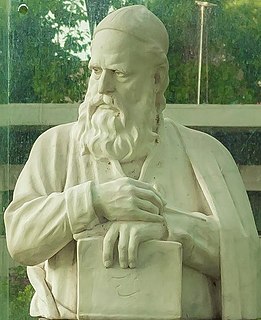A Quote by Richard St. Barbe Baker
Planting and growing increasing quantities of trees is the scientific solution to Earth's environmental dilemma.
Quote Topics
Related Quotes
Extrapolated, technology wants what life wants:
Increasing efficiency
Increasing opportunity
Increasing emergence
Increasing complexity
Increasing diversity
Increasing specialization
Increasing ubiquity
Increasing freedom
Increasing mutualism
Increasing beauty
Increasing sentience
Increasing structure
Increasing evolvability
We should stop the non-scientific, pseudo-scientific, and anti-scientific nonsense emanating from the right wing, and start demanding immediate action to reduce global warming and prevent catastrophic climate change that may be on our horizon now. We must not let the [Bush] Administration distort science and rewrite and manipulate scientific reports in other areas. We must not let it turn the Environmental Protection Agency into the Environmental Pollution Agency.
In the assemblies of the enlightened ones there have been many cases of mastering the Way bringing forth the heart of plants and trees; this is what awakening the mind for enlightenment is like. The fifth patriarch of Zen was once a pine-planting wayfarer; Rinzai worked on planting cedars and pines on Mount Obaku. . . . Working with plants, trees, fences and walls, if they practice sincerely they will attain enlightenment.
I am not afraid of the priests in the long-run. Scientific method is the white ant which will slowly but surely destroy their fortifications. And the importance of scientific method in modern practical life--always growing and increasing--is the guarantee for the gradual emancipation of the ignorant upper and lower classes, the former of whom especially are the strength of the priests.
If writing novels is like planting a forest, then writing short stories is more like planting a garden. The two processes complement each other, creating a complete landscape that I treasure. The green foliage of the trees casts a pleasant shade over the earth, and the wind rustles the leaves, which are sometimes dyed a brilliant gold. Meanwhile, in the garden, buds appear on the flowers, and colorful petals attract bees and butterflies, reminding us of the subtle transition from one season to the next.
Spraying to kill trees and and raspberry bushes after a clear-cut merely looks unaesthetic for a short time, but tree plantations are deliberate ecodeath. Yet, tree planting is often pictorially advertised on television and in national magazines by focusing on cupped caring hands around a seedling. But forests do not need this godlike interference... Planting tree plantations is permanent deforestation... The extensive planting of just one exotic species removes thousands of native species.
By the help of God and with His precious assistance, I say that Algebra is a scientific art. The objects with which it deals are absolute numbers and measurable quantities which, though themselves unknown, are related to "things" which are known, whereby the determination of the unknown quantities is possible.
One of my fondest memories growing up in Rwanda was seeing everyone participating in community-building activities. This happened every Saturday at the end of month. People work together in cleaning streets, planting trees, and take care of each other by facilitating productive conversations and actions that are beneficial for the society.
I think of Wangari Mathai in Kenya. If she started out saying she wanted to plant 20 million trees, she would have been laughed at. In fact, the foresters and the government did laugh at her. They said, "Villagers? Un-schooled villagers? Planting trees? No, no, no, it takes foresters." So she planted trees anyway.


































